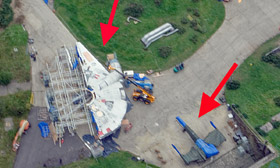In September 2013, President Ibrahim Boubacar Keita was sworn in to run a country with acute development challenges. Mali ranks in the bottom dozen countries in the UN's latest human development report.
In 2012, Tuareg mercenaries returned from Libya to stage a rebellion. The neglected Malian army revolted and ousted the then president, before Islamists linked to al-Qaeda took advantage of the chaos, imposing a version of sharia law on Timbuktu residents, many of whom fled fearing for their lives.
Mali will achieve only one of the millennium development goals – access to water. At least 40% of the population live more than 5km from a health centre. Unicef says neonatal problems, malaria, pneumonia and diarrhoea account for 70% of under-five deaths. Malnutrition prevalence in under-fives is 27%. The population growth rate of 3.6% is in the world's highest five.
According to the UN, the 2012-13 crisis affected 2.8 million people. More than 100,000 Malians – mainly Tuaregs – are still refugees in neighbouring countries. It has taken a year since President Keita's election for the government and northern armed groups to begin charting a roadmap towards peace talks. But the process, currently being brokered by Algerian officials, is slow. People are still very afraid.
Alex Duval Smith asks people in Timbuktu about their everyday challenges, before visiting the capital Bamako to address put people's concerns to a politician, an activist and a representative of the International Monetary Fund (IMF). We hear Mali's second deputy speaker of parliament, Amadou Thiam, the IMF's local representative Anton Op de Beke, and civil society activist Coumba Bah.











